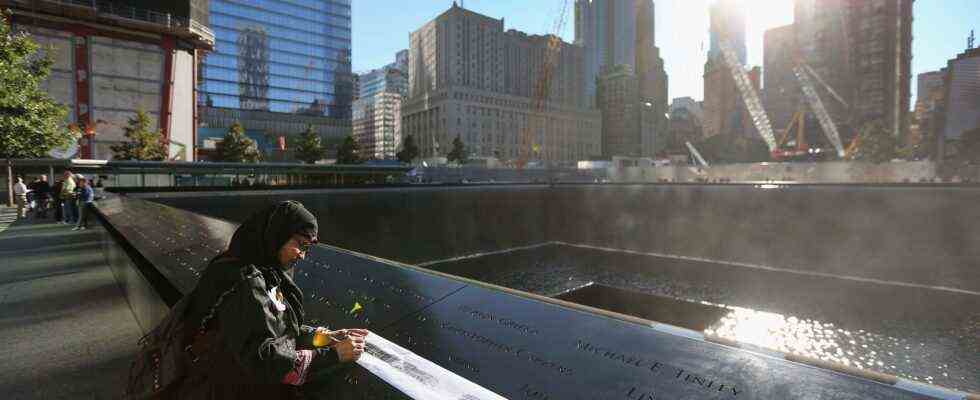Status: 09.09.2021 9:07 p.m.
The attack by Islamist terrorists on September 11, 2001 caused two worlds to collapse, even for Muslim US citizens. From then on they were under general suspicion – which has not completely disappeared to this day.
Two weeks before 9/11, Zainab Chaudry had started wearing a hijab. At 19 years of age. Chaudry recalls that her father was skeptical. And on the day terrorists plane crashed into the World Trade Center in New York, skepticism turned to fear.
On the day she was just leaving the pharmacy school she was attending, her father called: “He said, ‘Take off your hijab’ and I asked, ‘Why, what happened?’ And he replied, ‘We’ll speak later, but only for your safety, take off your hijab for the moment.’ “
On the way home, a passerby pulled the pharmacy student’s headscarf. She finally put the material in her pocket. You hated being scared. “But I realized that something would change irreversibly. That our country will never be the same again.”
A change for everyone – including Muslims
20 years after the attacks of September 11th, the United States is reporting in detail how strongly the events affected young Muslims. How much America’s fear of militant Islamists has also changed their lives.
Warnings were given early on against the marginalization of three million Americans of Muslim faith. President George W. Bush spoke to the nation seven days after the terrorist attack:
Women in this country who cover their heads need to feel safe when they leave the house. Mothers who cover themselves must not be threatened. Otherwise this isn’t the America I know, that’s guess.
Everyday life was different
The reality of everyday life was different, says Zainab Chaudri in retrospect. Muslim Americans would have had different experiences.
The images of the terrorist attacks on US television were mixed with images of women in burqa or hijab right from the start. Muslims were labeled – even in US pop culture. In films, for example, evil has long come from the Arabian Peninsula.
Special rules for Muslims
In reality, the US called for a war on terror. New agencies have been set up to monitor people. In June 2002, Justice Minister John Ashcroft announced that men from certain Arab or Muslim-majority countries would have to register with the government and hand in fingerprints – in a country that otherwise has no registration system.
He was called “Taliban”, “Terrorist” or “Osama Bin Laden” by some marines after September 11th, said Mansoor Shams from Baltimore in a television interview. Like her, he had served in the US military until 2004. The rejection runs deep. The other day, while booking a hotel for his congregation, he said it was about the group of a house of prayer instead of talking about a mosque.
It’s the persistent fear of being rejected: “20 years after 9/11, I can’t get the feeling out. So we haven’t made much progress, have we? I mean, you can’t call that progress.”
Most recently, the elected US President Donald Trump had rekindled the fear and, for example, issued an entry ban for people from some predominantly Muslim countries.
A decision that met with loud protest: In January 2017, US citizens demonstrated at Dallas Airport against an entry ban for citizens from Muslim-majority countries.
Image: picture alliance / Brandon Wade / Star-Telegram / dpa
A wake-up call
Mansoor Shams, on the other hand, has begun to use his role as an ex-marine and Muslim American to educate people. Zainab Chaudri now works in Baltimore for the American-Islamic Relations Council. She says the attacks were also a kind of wake-up call for Muslims in America.
They would have forced her to leave her normal life and talk to the interfaith community. To explain for themselves what Islam is, instead of leaving it to those “who always try to relate what happened that day to the faith followed by 1.5 billion Muslims worldwide”.
About 0.8 percent of the US population are Muslim. The largest mosque is in Dearborn, Michigan, which has many Arab citizens because of the automotive industry.
Image: picture alliance / dpa
Claim to your own identity
And when Chaudry remembers the day 20 years ago, she also remembers that the hijab didn’t stay in her pocket for long – she put it back on after a few hours. She was not defiant – “but I was not ready to accept that I had to change my identity because of the terrorist attacks”.
That sounds so natural. For Muslim Americans, mourning for the victims of the 9/11 attacks is still linked to concerns about their own security and their future in the United States.

